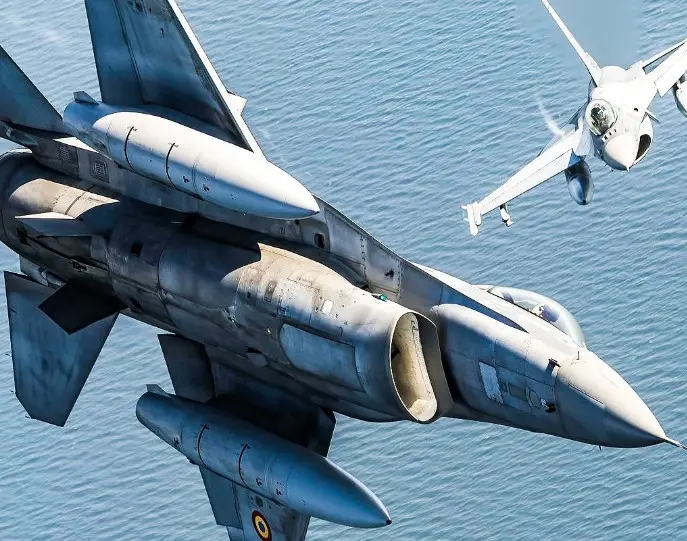The world’s nuclear arsenals, held by a select group of nations, plays a pivotal role in international relations and global security. The strategic landscape of global politics has been heavily influenced by the presence of nuclear weapons, with a select few countries wielding this immense power. As the world grapples with the delicate balance of peace and power, the role of nuclear-armed nations, becomes crucial.
These countries’ nuclear capabilities not only shape their own defense and foreign policies but also have far-reaching implications for international security dynamics, geopolitical relations, and global efforts towards non-proliferation and disarmament.
This article examines the eight countries with the most advanced nuclear capabilities. Thus exploring their strategic importance, technological innovations, and historical context.
Table of Contents
The top 8 countries with advanced nuclear arsenals
1. United States
The United States maintains one of the world’s largest and most technologically advanced nuclear arsenals. With innovations such as the B-21 Raider, a next-generation stealth bomber, and the Columbia-class submarines, the U.S. continues to modernize its nuclear forces. Historically, the development of nuclear weapons in the U.S. began with the Manhattan Project during World War II. Thus setting the stage for its long-standing role as a nuclear superpower.
2. Russia
Russia, inheriting the Soviet Union’s vast nuclear arsenal, remains a major nuclear power. It boasts a significant array of ICBMs and SLBMs, including the new Sarmat ICBM, known for its long-range and payload capacity. The history of Russia’s nuclear development is intertwined with the Cold War arms race. Thus reflecting its ongoing emphasis on strategic deterrence.
3. China
China’s nuclear arsenal, though smaller than those of the U.S. and Russia, is rapidly expanding and modernizing. The introduction of the DF-41 ICBM and upgrades to its Jin-class SSBN fleet underscore China’s efforts to enhance its strategic capabilities. Traditionally following a minimum deterrence strategy, China’s recent expansions indicate a shift towards a more assertive nuclear posture.
4. France
France’s nuclear forces, while more limited in scale, are highly sophisticated. The modernization of its Triomphant-class submarines and upgrades to its Rafale fighter jets, capable of delivering nuclear strikes, demonstrate France’s commitment to maintaining a credible nuclear deterrent. France’s nuclear policy is also closely tied to its role in European security and its broader strategic objectives.
5. United Kingdom
The United Kingdom’s nuclear arsenal centers around its submarine-based Trident system, a cornerstone of its defense strategy. The ongoing debates regarding the renewal and cost of the Trident program highlight the complexities of maintaining a nuclear deterrent in the 21st century. The UK’s nuclear strategy is also heavily influenced by its NATO commitments and the evolving security landscape in Europe
6. India
India’s nuclear arsenal has been growing, with a focus on developing a nuclear triad. The development of the Agni-V missile and the commissioning of the INS Arihant SSBN represent significant advancements in India’s strategic capabilities. India’s nuclear policy, characterized by a no-first-use doctrine, is shaped by regional security concerns, particularly its relationships with neighboring Pakistan and China.
7. Pakistan
Pakistan’s nuclear arsenal is primarily aimed at deterring India. Its development of tactical nuclear weapons and multiple delivery systems underscores its commitment to maintaining a credible nuclear impediment.
8. Israel
Israel is widely believed to possess a significant but undeclared nuclear arsenal. The country follows a policy of nuclear ambiguity and has not officially confirmed its nuclear capabilities. However, its nuclear deterrent is considered one of the most robust in the world.
What do these countries having nuclear arsenals mean?
The possession of nuclear weapons by countries like the United States, Russia, China, France, the United Kingdom, and India has profound implications for global security and political dynamics.
These weapons serve as powerful deterrents. Thus underpinning the concept of mutual assured destruction that has arguably prevented large-scale conflicts between nuclear-armed nations.
However, they also contribute to regional tensions, especially in areas where multiple countries possess nuclear capabilities, such as between India and Pakistan.
On the flip side, the existence of nuclear arsenals poses several challenges and risks. It can lead to arms races. And encourage nuclear proliferation as other countries seek to develop their own nuclear capabilities for security or prestige.
The maintenance of these arsenals requires substantial financial and scientific resources, which could be directed toward other pressing societal needs. Moreover, there are ongoing concerns about nuclear security, the risk of accidents, and the potential for catastrophic humanitarian and environmental consequences.
These issues underscore the complex diplomatic and ethical landscape surrounding nuclear weapons. Thus balancing national security interests with global efforts towards disarmament and non-proliferation.
The implications of these nuclear arsenals
These countries’ nuclear capabilities are not just a measure of raw power but are also deeply intertwined with their geopolitical strategies and international relations. The ethical implications of possessing and potentially using such devastating weapons are a subject of ongoing debate, as is the role these arsenals play in global peace and stability.
International efforts like the Non-Proliferation Treaty (NPT) aim to prevent the spread of nuclear weapons. Yet the reality of these nations’ arsenals underscores the complexity of achieving global nuclear disarmament.
As technology advances and the global political landscape shifts, the management and future of these nuclear arsenals remain critical issues in international affairs.












